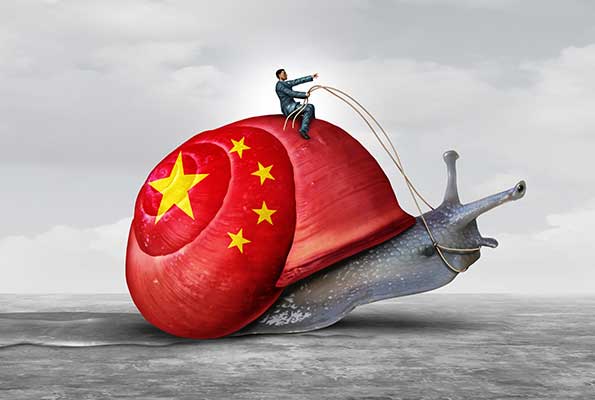A central bank adviser stated that China has little room for more monetary policy easing and should focus on structural changes like supporting businesses rather than relying on macroeconomic measures to boost GDP.
Beijing’s ability to ease its monetary policy is constrained by rising interest rate differentials with the United States, according to Liu Shijin, a member of the People’s Bank of China’s (PBOC) monetary policy committee, who spoke at a finance symposium in Shanghai.
He stated at the annual Bund Summit meeting that various levels of the Chinese government are experiencing financial strain.
Liu, vice president of the Development Research Center of the State Council, warned that if China continued to concentrate on macro policies in its efforts to stabilize GDP, there would be an increasing number of unintended consequences.
More crucially, we will once more pass up the chance to implement structural reforms.
Despite a plethora of monetary and fiscal measures to promote confidence, China’s post-COVID recovery has stalled due to low consumption, declining exports, and a worsening property loan issue.
Liu outlined a fresh set of structural changes that will help the economy right away while also reviving long-term development momentum.
They include supply-side reforms that involve fostering entrepreneurship in new industries as well as demand-side reforms with a focus on providing migrant workers with access to public amenities enjoyed by city residents, he added.
To restore investor trust damaged by government crackdowns on industries ranging from the internet to private tutoring, Beijing’s top economic planning body announced this month that it will establish a new department to assist private enterprises.
Liu stated that China should more explicitly recognize the position of private firms from an ideological and political standpoint.
Meanwhile, talking about the Chinese GDP, the country’s economy, after undergoing a period of economic turbulence characterized by decelerating retail spending growth, falling real estate prices, and a slump in industrial productivity, is now showing signs of recovery.
“This comes on the heels of stimulus measures initiated by China’s central bank, including an unexpected interest rate cut and reduction in banks’ reserve requirements to encourage lending,” commented a Reuters report, while observing the latest trends.
“Despite a slow start to the year with retail growth crawling at a mere 2.5% in July, official data indicates a rebound in August, with retail sales growth bouncing back to 4.6%, significantly above the anticipated 3%. Similarly, industrial productivity increased by 4.5%, up from July’s slower pace of 3.7%. Consumer prices also rebounded last month following alarming deflation in July,” it added further.
UBS Group’s head of China strategy, James Wang, has now suggested that there are indicators that the equity market may have reached its lowest point and reasons for optimism were emerging. Amid these developments, Alibaba Group Holding and Trip.com were gaining attention.



